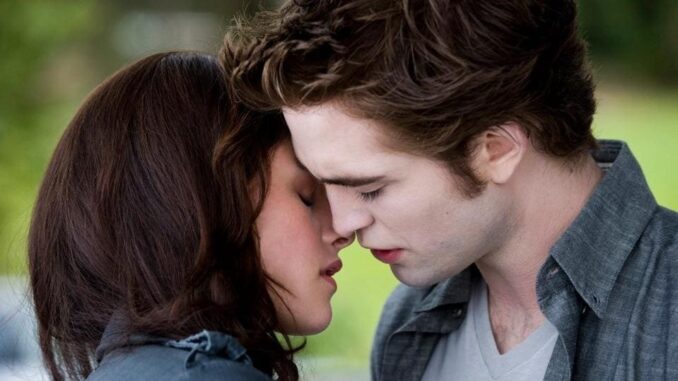
The perpetual gloom of Forks, Washington, the shimmering skin of a vampire in sunlight, the breathless chase through the forest – these images, once the fervent domain of a specific moment in pop culture, persist. Twilight, Stephenie Meyer’s paranormal romance saga, arrived with a supernova's intensity in the mid-2000s, drawing both rabid adoration and scathing critique. Yet, against all odds, its gravitational pull hasn't waned. A decade and a half after its cinematic debut, Twilight isn't just a nostalgic artifact for millennials; it continues to ensnare a fresh generation of viewers, proving that its core appeals are, like Edward Cullen himself, strangely immortal.
At its shimmering heart, Twilight offers the promise of an all-consuming, transformative first love. For the uninitiated, the saga centers on Bella Swan, a seemingly ordinary teenager who moves to a dreary small town and falls for Edward Cullen, a brooding, impossibly beautiful vampire. Their romance is immediate, intense, and fraught with peril – a recipe tailor-made for adolescent yearning. What captures new viewers is this almost visceral portrayal of an immediate, soul-deep connection. In a world increasingly filtered through screens and fleeting interactions, the idea of a love so powerful it transcends species and defies death holds an undeniable allure. It’s the ultimate wish fulfillment: being seen, truly seen, by someone extraordinary, and being loved with an unwavering devotion that borders on obsession. This feverish intensity, often critiqued for its possessive undertones, is precisely what resonates with young hearts craving a love that feels epic, absolute, and capable of sweeping them off their feet.
Beyond the magnetic romance, Twilight provides a potent cocktail of escapism. Forks, with its endless rain and small-town ennui, serves as the perfect canvas for the extraordinary. Bella’s mundane high school life is suddenly infiltrated by ancient feuds, superhuman abilities, and the stark reality of living amongst mythical creatures. For a new generation navigating the complexities and often mundane realities of their own lives, the thought that a world of hidden wonders exists just beneath the surface of the ordinary is incredibly appealing. It’s the classic "chosen one" narrative, stripped down: an unassuming girl stumbles into a secret society, not through prophecy, but through simple, fateful attraction. This blend of the ordinary and the fantastical makes the transition believable, allowing viewers to easily project themselves into Bella's shoes and imagine their own lives being suddenly imbued with danger, magic, and eternal love.
Furthermore, Bella Swan herself, for all her perceived flaws, remains a surprisingly relatable protagonist. She's awkward, prone to tripping, often feels like an outsider, and grapples with the universal desire to belong and be understood. This ordinariness makes her an approachable cipher. New viewers, often at an age where they too feel a bit out of sync with the world, can see aspects of themselves in Bella. And then, she’s chosen. She’s not special because of a unique power or an inherent destiny, but because of an inexplicable connection. This narrative offers a powerful fantasy: that even if you feel unremarkable, you can still be the center of an epic story, desired and fought over by supernatural beings. Her agency, particularly in her fiercely independent choices about her life and love, despite external pressures, also speaks to a generation grappling with identity and self-determination.
Finally, Twilight's enduring appeal is significantly bolstered by its burgeoning legacy as a cultural touchstone. For new viewers, it’s not just a series of books and movies; it's a shared language, a wellspring of memes, and a subject of endless online discourse. The saga has transcended its original moment to become a generational hand-me-down, passed from older siblings, friends, or discovered through viral content on platforms like TikTok. This creates a ready-made community. Discussions about "Team Edward vs. Team Jacob," debates over the saga's more problematic elements, or simply reveling in its campy charm become a form of social bonding. It’s comforting to step into a world where the rules are known, the characters are familiar, and there's a vast online library of analyses, fanfiction, and parodies to explore. The re-discovery, often ironic at first, quickly morphs into genuine engagement with the story's undeniable emotional core.
In essence, Twilight continues to capture new generations not because it’s a perfect narrative, but precisely because it isn’t. Its imperfections, its heightened emotions, and its unabashed sincerity in portraying a grand, all-consuming romance tap into fundamental human desires. It’s a myth for the modern age, echoing tales of forbidden love and heroic transformation, all wrapped in a shimmering, rain-soaked package. As long as young hearts yearn for a love that feels epic, for a world where the mundane hides magic, and for a story where an ordinary person can become extraordinary, Twilight's sun will continue to sparkle, forever drawing new eyes into its perpetual gloom.
